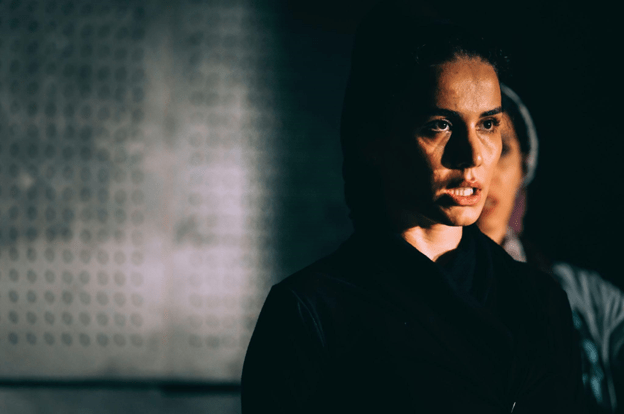Can you get better at acting while alone, at your own home?

When you’re watching a terrific actor on stage or screen, their craft looks effortless and natural. But as the old saying goes, it takes a whole lot of effort to look effortless. The great actors throughout history have worked hard on their technique.
There are many ways to work on your acting, from acting lessons to getting out and participating in a show. However, there are also many ways that you can practice acting at home by yourself. Here are some ideas and techniques you might like to try, all from the comfort of your domicile.

Make a recording and watch yourself back
You’ll learn so many things from watching a recording of yourself. There are countless tics and accidental mannerisms that people develop over a lifetime, often entirely unconsciously.
A great way to practice acting at home is to act out a scene in front of a camera, and then watch it back. You’ll be astonished by the things you see. This is a great way to act more deliberately and to get comfortable with yourself in front of a camera.
Of course, watching a recording of yourself can be uncomfortable. Many people do not like what they see, and become deeply embarrassed when witnessing themselves on tape. You must make your peace with this process; if you’re going to get better at acting, you need to know what you look and sound like.
Educate yourself and watch some of the great actors
With a simple streaming subscription or even just YouTube, you’ve got everything you need to watch and learn from some of the greatest actors in history. By watching great actors, and thinking deeply about their choices, you’ll learn an enormous amount about acting. And, of course, you can do that from the comfort of your own home.
Experiment with different props and costumes
Wearing different costumes and holding different props can shape your behaviour and change the way you act. There’s a good reason why theatrical productions insist on having dress rehearsals: clothes maketh the man.
Order some different costumes and try acting in them around the house. This will help you to embody different characters, and push the limits of your acting to new and fascinating places.
Experiment with some of Stanislavski’s acting exercises
The teachings of Konstantin Stanislavski are complicated and nuanced, but they reap incredible results. The actor and director wrote several books about acting that many great actors swear by. You can work with some of his techniques while at home by yourself.
For example, at the end of An Actor Prepares, Stanislavski describes an acting exercise where one attempts to sit in a chair interestingly. A great actor can do something as simple as sitting in a chair and do it in a way that engages the audience.
If you haven’t already read Stanislavski’s work, reading it will pay dividends for your acting. You’ll find many excellent techniques and thoughts that will progress your acting, even when you’re home alone.
Use other methods to compliment acting at home by yourself
Acting alone, at home, by yourself is all well and good. However, acting is a craft, and like any craft, there will come a time when you hit a wall in your development. Whether it’s acting, playing a musical instrument, or mastering a martial art, a great teacher can lift you out of the doldrums and take you to a new exciting realm. So, as well as acting at home by yourself, consider communal acting lessons, out there, in public.
This will confer all sorts of benefits. For one thing, there just aren’t that many roles in plays or films that require somebody to act in a solitary way. Sure, there are one-man shows, and there are soliloquies and monologues in plays and movies, but this sort of acting is comparatively rare. Usually, when one is acting, one is acting with other people.
Lessons in the Meisner Technique can be particularly fruitful for learning to work with other performers and tap into the magic of performance. The Meisner Technique focuses on looking externally, rather than internally. It’s about responding to live moments, improvisation, and working with fellow performers.
